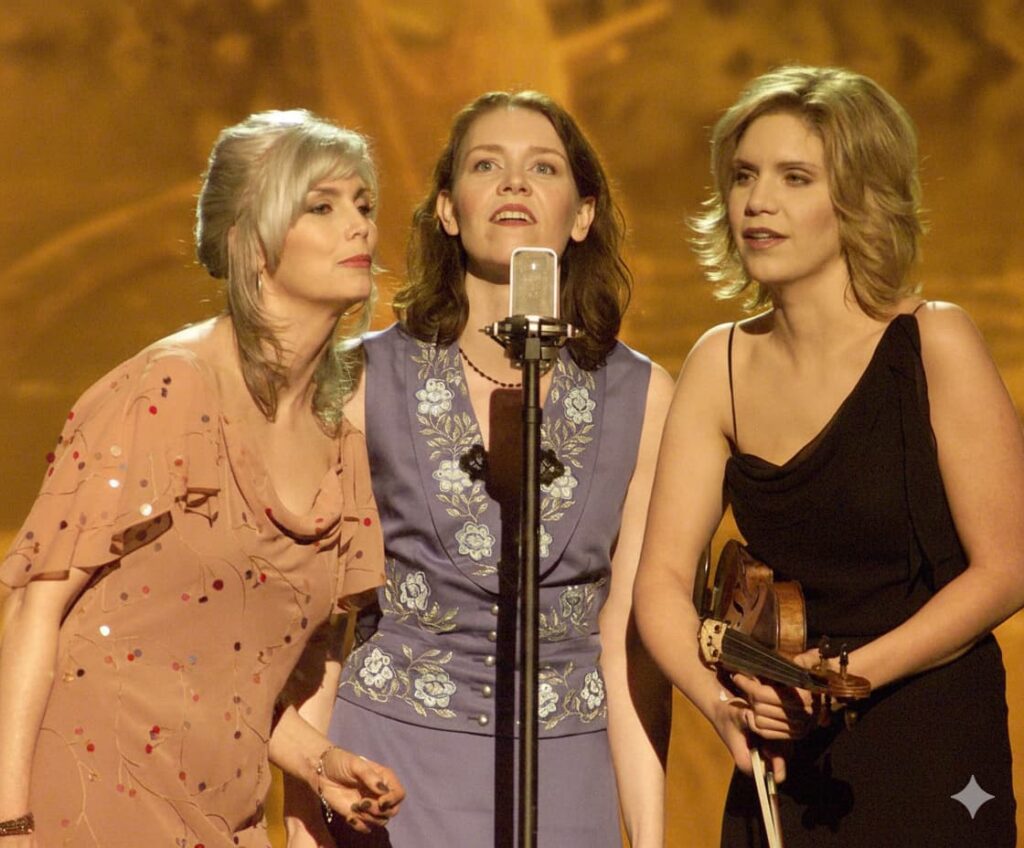
A lullaby draped in darkness, where ancient voices echo through a lineage of women who refuse to let forgotten songs disappear.
When Emmylou Harris, Alison Krauss, and Gillian Welch joined their voices on “Didn’t Leave Nobody But The Baby” for the O Brother, Where Art Thou? soundtrack in 2000, the song charted not by the usual measures of radio placement but by something older and more enduring: memory, tradition, and the resurgence of American roots music. The soundtrack itself became a cultural landmark, winning the Grammy for Album of the Year and ushering in a revival of old-time and Appalachian music for a new generation. Within that tapestry, this track stood out not for commercial ranking, but for its chilling beauty — a spellbinding reinterpretation of a centuries-old lullaby.
The origins of “Didn’t Leave Nobody But The Baby” stretch deep into the soil of American folk tradition, with roots in Appalachian, African American, and Anglo-Celtic musical lineages. Rather than presenting the lullaby in its raw, archival form, Harris, Krauss, and Welch guided by producer T Bone Burnett shaped it into something hauntingly new. Their version is part preservation, part re-imagining, a piece that honors its past while giving it a spectral modern life. The arrangement is intentionally sparse: a droning modal bed of sound, hypnotic and circular, like a rocking chair creaking in a dim cabin. Over this foundation, the three voices weave in and out, never competing, always intertwining, creating a braid of harmony that feels both maternal and ghostly.
The lyrics themselves hold a duality typical of old Appalachian lullabies. At first glance, they seem simple: a mother soothing a child, guiding them toward sleep with the promise that “the big boat’s gonna carry you to heaven.” But beneath that gentle veneer lies something more unsettling. Folk lullabies of this era often walked the line between comfort and sorrow, shaped by lives where hardship, loss, and longing were constant companions. This song is no exception. Its repeated refrains echo like warnings or memories reminders that the world outside the cradle is uncertain, that even in the act of comforting a child, the singer reveals her own weariness and resignation.
Harris, Krauss, and Welch bring that inner tension to life with remarkable restraint. Their harmonies do not swell; they hover. Their delivery is not dramatic; it is patient, resigned, knowing. Together, their voices create a chorus of generations mothers, daughters, caretakers who have sung this melody across time. In their hands, the lullaby becomes a vessel, carrying not only a child toward sleep but carrying the listener backward into a collective memory of American music itself.
In the end, “Didn’t Leave Nobody But The Baby” is more than a song. It is an inheritance a fragment of an older world, preserved and passed forward through three of the finest voices ever to grace American roots music.